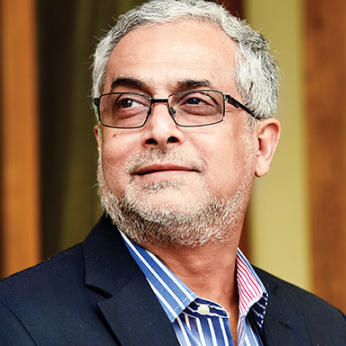In the dynamic landscape of today’s world, organisations face a myriad of challenges, ranging from global health crises to economic uncertainties. The ability to navigate these uncertainties and emerge stronger has become a critical necessity.
Saurabh Uboweja, Founder and Managing Partner at BOD Consulting connected with Mukesh Mathur, Senior Partner at BOD Consulting and C-Suite Engagement, High Ticket Deals and Strategic Partnerships Expert to know the diverse strategies organisations can implement based on the nature of potential turbulences.
Here’s an excerpt from their chat.
Q1: Why is it crucial for organisations to fortify a sense of resilience in today’s fast-paced world?
I believe that the urgency for organisations to build resilience stems from the unpredictable nature of contemporary challenges. Whether it’s a global health crisis, a data breach, or economic disturbances, organisations need the ability to adapt, sustain, and recover from breakdowns to thrive in such a fast-paced environment.
Q2: How can organisations address potential vulnerabilities and enhance their self-awareness?
To address vulnerabilities, organisations certainly must understand potential threats and cultivate a sense of self-awareness first. It can be done by identifying both internal deficiencies, as well as external uncertainties. By outlining possible risks, organisations can sort out aspects that demand urgent consideration.
Q3: What role does smart and strategic planning play in building resilience?
I think smart and strategic planning is the key to proactively and effectively addressing various situations that may arise and formulating strategies for risk management.
Q4: How can organisations balance responsiveness to change with a commitment to core values?
Balancing responsiveness and core values requires continual evolution and adaptation. Leaders must cultivate a resilient, learning mindset to make well-informed decisions amid challenges. This not only enables them to navigate uncertainties but also inspires their teams.
Q5: In what ways can organisations broaden their operational aspects and create backups for better resilience?
Strengthening resilience involves broadening primary operational aspects and ensuring backup systems. From distribution channels to talent bases, reliance on limited sources can pose serious liabilities. Exploring additional sourcing options and providing cross-functional training bolsters continuity despite interruptions.
Q6: How does economic judiciousness contribute to organisational resilience?
Effective fiscal planning lays the groundwork for resilience. Retaining financial reserves, expanding investments to minimise risk exposures, and consistently reevaluating market trends empower companies to respond swiftly to fluctuating conditions.
Q7: Why are partnerships and meaningful collaborations essential for organisational resilience?
Fortifying endurance requires collaborative efforts. Meaningful relationships and partnerships, both within and beyond industry realms, empower organisations during difficult circumstances. Cross-industrial expertise, professional guidance, and support from collaborative networks are invaluable resources.
Q8: What measures are essential for maintaining robust cybersecurity practices?
Consistently strengthening defences, revising security measures, executing detailed reviews, and spreading cybersecurity awareness among internal staff members is imperative. Strategic preventive measures protect sensitive information and maintain functional reliability in the face of contemporary cybersecurity challenges.
Q9: What other measures would you recommend to build organisational resilience?
In my opinion, prioritising employee well-being and fostering a culture of creativity and learning are two other integral components of organisational resilience. It contributes to the mental well-being of the employees and continuous learning enhances the organisation’s adaptability.

























